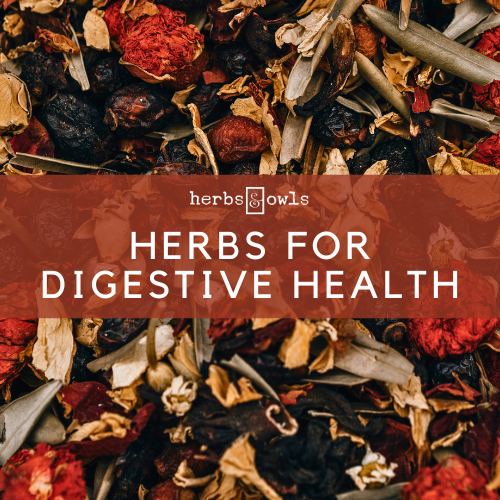Digestive Health & Bitters
On a regular basis, I encounter stories of people with issues like bloating, acid reflux, IBS, chronic constipation, and the list goes on.
They make up part of the 40% of Americans whose daily lives are disrupted by digestive troubles.
Here are some things to consider when thinking about your digestive health:
1. Your brain and your gut are connected!
The brain-gut connection is all about the back-and-forth communication between your brain and your digestive system. They're like buddies, connected through various pathways like nerves, hormones, and even your immune system.
2. Stress and emotions can totally mess with your gut.
When your brain gets all worked up, and releases stress hormones like cortisol, it can actually affect how your gut moves, how sensitive it is, and even secretions. That's why when you're stressed or anxious, you might end up with tummy troubles like stomach pain, diarrhea, or constipation.
Oh, and let's not forget about the amazing gut microbiota. They're the trillions of tiny organisms chilling in your gut. They can influence your mood, behavior, and even how your brain works.
What are some signs that your stress and anxiety are affecting your digestive health?
Acid reflux
Bloating and gas
Nausea
Diarrhea or constipation
The good news is... herbs can help!
Herbs that reduce bloating:
Peppermint: has been used for centuries to soothe digestive discomfort, including bloating.
Fennel: contains compounds that help relax the gastrointestinal tract muscles, promoting smooth digestion and reducing gas.
Herbs that reduce acid reflux:
Chamomile: can help relieve symptoms of acid reflux, such as heartburn and irritation.
Marshmallow root: soothes the lining of the esophagus and reduces symptoms like heartburn.
Herbs that ease constipation:
Licorice root: Licorice root has mild laxative properties and can help stimulate bowel movements. It also has a soothing effect on the digestive system and can help reduce inflammation.
I want to dive a little deeper into digestive health, specifically about the all-too-familiar sensations of bloating and gas that often leave us with that uncomfortable, extended belly feeling.
Leading causes of bloating and gas include:
Inadequate digestion of food
Imbalances in the gut microbiota
Consuming large meals/eating too quickly can overload the digestive system
Now, when it comes to addressing bloating and gas, one of my favorite class of herbal remedies are bitter herbs!
Digestion starts in the mouth, and bitter herbs are known for their ability to stimulate the bitter receptors on the tongue, which triggers a cascade of digestive responses in the body. These bitter compounds are believed to have a positive impact on digestion and overall health.
Bitter herbs can be used to promote:
1. Digestive function
2. Improve nutrient absorption.
Bitters can help enhance appetite, stimulate the production of digestive enzymes, improve bile flow from the liver, and support overall digestive function.
Some of My Go-To Bitter Herbs Include:
Dandelion (Taraxacum officinale): Dandelion root and leaves are often used as bitter herbs. They can support liver function, aid digestion, and help relieve symptoms such as bloating and gas.
Gentian (Gentiana lutea): Gentian root is a highly bitter herb traditionally used to stimulate appetite and improve digestion. It can be found in various herbal preparations, including bitters formulas.
Artichoke (Cynara scolymus): Artichoke is a bitter herb commonly used in herbal medicine to support digestive health. It is known for its ability to stimulate bile production, which aids in the digestion of fats. Artichoke leaf extract is often used in herbal formulations targeting liver and gallbladder support.
Bitters can be taken as herbal tinctures, teas, or incorporated into culinary preparations.
If you're intrigued by the world of bitters, experimenting with an herbal bitters spray just 15 minutes before a meal can be an excellent way to explore its benefits!

